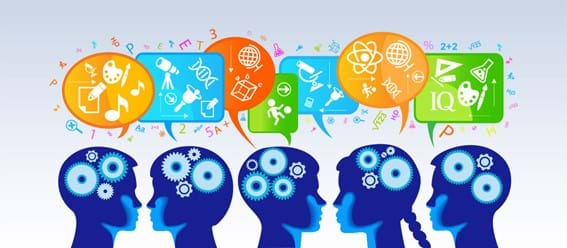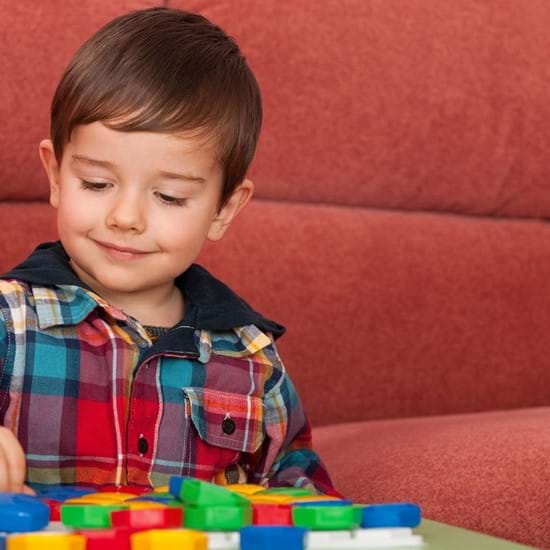
Multiple Intelligences

Written by: Marielle Potvin
Your child’s intellect is undoubtedly one of the characteristics of his development that concerns you most.
This aspect of his personality may reassure or worry you when you think about your child’s future success. How many times have you secretly wondered if your child was smart, or even looked for signs to confirm this?
If someone were asked you to describe intelligence, you would probably give an answer that includes the results of an IQ (intelligence quotient) test, as this is the common standard used to determine a child’s intelligence. And if, thank heavens, he has an excellent memory, a rich vocabulary and math comes naturally to your child, you may believe that you have nothing to worry about in terms of his academic progress.
However, we now know that the IQ test is not the only way to assess intelligence, since it only measures certain forms of intellect. In fact, it only measures the two forms most emphasized by the school system: verbal-linguistic intelligence and logical-mathematical intelligence. It wasn’t until 1983 that Howard Gardner, a Harvard psychologist, challenged the traditional concept of intellect with his theory of multiple intelligences, which presented a much broader definition of intelligence.
It all started when he first noticed that certain children with high IQs failed in their studies, or that certain reputable intellectuals were capable of reading instructions to assemble a piece of furniture but were unable to physically carry out the task, while an illiterate was capable of doing so with ease. It was then that the concept of intelligence was challenged!
Howard Garner also noted that some talents whether manual, artistic or relational were not considered in the assessment of intelligence. He concluded that there must be several forms of intelligence and his theory presented eight major types of intelligence.
The idea gained ground and the field of education now universally acknowledges that Howard Gardner’s theory of multiple intelligences is sufficiently developed to be used as a reference to determine the type of stimulation a child needs to develop his full potential.
Here's an overview of the Howard Gardner’s eight forms of intelligence, followed by a quiz and its compilation chart to analyze your results and discover which of type or types (in the event of a tie) of intelligence your child is strongest in.
Bear in mind everyone possesses all the types of intelligence, that a person’s profile can evolve or change over time, and that the purpose of this theory is not to label, but to help your child know his strengths.
What are the multiple intelligences?
*The masculine form is used throughout this article to simplify reading.
1. Logical-mathematical Intelligence
Characteristics: An aptitude for problem solving and mathematics.
These people always ask why and how; they enjoy thinking about abstract ideas; they want to know “what happens next” and like to think in sequences or patterns.
Activities likely to favour its development: Working with a computer, programming, classifying, experimenting, reading, discussion and exploration, solving mysteries, word games, deciphering codes, going to the museum, solving puzzles and problems and playing logic games
Hubert Reeves is a good example of someone with strong logical-mathematical intelligence.
2. Visual-Spatial Intelligence
Characteristics: A remarkable imagination.
These people enjoy drawing, painting and visual arts. They are good at interpreting images, graphs and charts; they are skilled at assembling puzzles and like to organize space, objects and surfaces. They prefer to see what you are talking about in order to understand it.
Activities likely to favour its development: Sports or art, creating organizational charts, editing videos and movies, mapping and charting, going to the theater, driving, and painting.
Leonardo de Vinci is a good example of someone with strong visual-spatial intelligence.
3. Interpersonal Intelligence
Characteristics: Excellent interpersonal skills.
People who have strong interpersonal intelligence like to talk and influence others; they are usually group leaders or the ones who organize. They have good communication skills and are apt when it comes to resolving conflicts. They are also good listeners, negotiators and know how to be persuasive.
Activities likely to favour its development: Socializing (making friends), win/win situations, discussions, peer teaching/editing, cooperative learning, organizing projects, conflict mediation, social awareness, showing empathy.
René Lévesque is a good example of someone with strong interpersonal intelligence.
4. Bodily-Kinesthetic Intelligence
Characteristics: A love for sports and physical movement, a tendency to be constantly active and involved to be happy.
People who have strong bodily-kinesthetic intelligence need to get up, stretch, touch and hold things in their hands.
Activities likely to favour its development: Role playing, dramatizing, crafts creative movement, field trips, dancing, physical education activities (sports).
Margie Gillis is a good example of someone with strong bodily-kinesthetic intelligence.
5. Verbal-Linguistic Intelligence
Characteristics: A love for words, languages and writing.
These people speak constantly, have a good memory when it comes to dates and names, love telling and listening to stories, love vocal diversity and remember funny stories.
Activities likely to favour its development: Oral presentations, debating and giving persuasive speeches, role playing, discussion, writing, giving reports, striking up conversations, listening to recordings, reading books with dialogue.
Gilles Vigneault is a good example of a person with strong verbal-linguistic intelligence.
6. Intrapersonal Intelligence
Characteristics: A desire for solitude.
These people like to think and have a good understanding of their strengths and weaknesses; they are skilled when it comes to setting personal goals and are comfortable being alone.
Activities likely to favour its development: Keeping a journal, relaxing, individual study, concentration exercises, meditating, and having alone time.
Gandhi is a good example of someone with strong intrapersonal intelligence.
7. Musical-Rhythmic Intelligence
Characteristics: A love for making music, sounds or rhythms.
These people like to hum, think in rhythms and sometimes sing.
Activities likely to favour its development: Keeping a steady beat, going to concerts, having background music during other activities, singing, composing music, writing songs, making up group slogans, playing an instrument.
Paul McCartney is a good example of someone with musical-rhythmic intelligence.
8. Naturalistic Intelligence
Characteristics: Skilled at organizing, selecting, grouping, and listing.
Activities likely to favour its development: Inventing systems, structuring ideas, asking questions, organizing, grouping people into categories (according to learning styles, types of intelligence), gardening, creating interior decorations, scientific research, teaching, managing, training, investigative work, exploring, and brainstorming.
Charles Darwin is a good example of someone with naturalist intelligence.
Click here to access our quiz(French only) and its compilation chart to analyze your results!
Bibliography of books by Howard Gardner (Main English publications):
- The development and education of the mind: The collected works of Howard Gardner. London: Routledge, 2006.
- Multiple Intelligences: New Horizons. New York: Basic Books, 2006.
- Frames of Mind: The Theory of Multiple Intelligences. Twentieth Anniversary Ed New York: Basic Books 2004.
- The Unschooled Mind. Second Edition. New York: Basic Books, 2004.
- The Disciplined Mind, New York: Penguin 2000.
- Intelligence Reframed. New York: Basic Books, 1999.
- Multiple Intelligences: The Theory in Practice. New York: Basic Books 1993

Marielle Potvin, Remedial Teacher
Follow me on Facebook: https://www.facebook.com/marielle.potvin
Email: marielle.potvin@gmail.com


